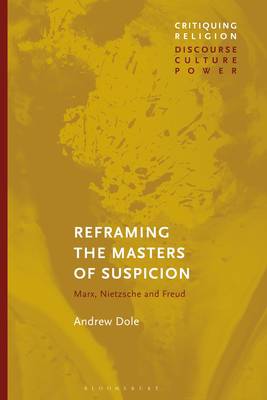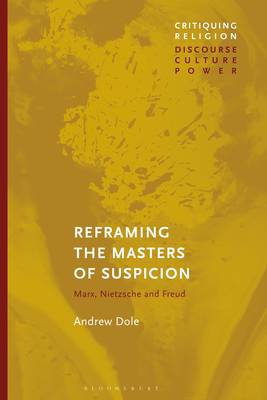
- Afhalen na 1 uur in een winkel met voorraad
- Gratis thuislevering in België vanaf € 30
- Ruim aanbod met 7 miljoen producten
- Afhalen na 1 uur in een winkel met voorraad
- Gratis thuislevering in België vanaf € 30
- Ruim aanbod met 7 miljoen producten
Omschrijving
This book revisits Paul Ricoeur's classification of Karl Marx, Friedrich Nietzsche, and Sigmund Freud as the "masters of suspicion", and provides a thought-provoking critique for critical religious studies scholars, as well as anyone working in critical theory more broadly. Whereas Ricoeur saw suspicion as a mode of interpretation, Andrew Dole argues that the method common to his "masters" is better understood as a mode of explanation. Dole replaces Ricoeur's hermeneutics of suspicion with suspicious explanation, which claims the existence of hidden phenomena that are bad in some recognizable way. Each of the masters, Dole argues, offered a distinct kind of suspicious explanation.
Reconstructing Marx, Nietzsche, and Freud in this way brings their work into conversation with conspiracy theories, which are themselves a type of suspicious explanation. Dole argues that conspiracy theories and other types of suspicious explanation are "cognitively ensnaring", to borrow a term from Pascal Boyer. If they are true they are importantly true, but their truth or falsity can be very difficult to ascertain.Specificaties
Betrokkenen
- Auteur(s):
- Uitgeverij:
Inhoud
- Aantal bladzijden:
- 264
- Taal:
- Engels
- Reeks:
Eigenschappen
- Productcode (EAN):
- 9781350170063
- Verschijningsdatum:
- 25/06/2020
- Uitvoering:
- Paperback
- Formaat:
- Trade paperback (VS)
- Afmetingen:
- 156 mm x 234 mm
- Gewicht:
- 371 g

Alleen bij Standaard Boekhandel
Beoordelingen
We publiceren alleen reviews die voldoen aan de voorwaarden voor reviews. Bekijk onze voorwaarden voor reviews.








